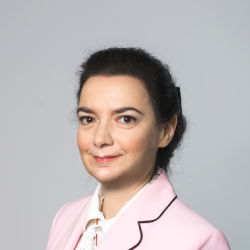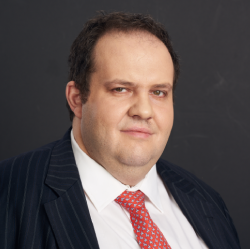Businesses to be forced to think about old age
They want to attract more companies to the voluntary formation of pensions

A new type of pension may appear in Russia — corporate pensions. The concept of voluntary corporate support is currently being elaborated by the Ministry of Finance of the Russian Federation. Today, it is mainly large state corporations who invest in pensions for their employees. They want to promise the rest of the businesses benefits from the state, for example, income tax, in exchange for participation in such corporate programs. Most experts remain sceptical about the idea. However, it may well take off — against the background of a severe shortage of qualified personnel in the labour market, such pension programmes can be a good incentive to hold on to work.
New pension plan
The Ministry of Finance of Russia plans to develop a concept of corporate pension provision in the country with maximum coverage for different categories of employees, it follows from the presentation of Natalia Kamenskaya, the head of the NPF Regulation Department at the Investfunds Forum XV conference.
The ministry plans to legislate for corporate pension provision as a separate type of voluntary pension provision, Kamenskaya explained. The options for tax incentives for corporate programmes may be similar to those that exist within the framework of non-state pension provision: this is an employer's exemption from paying income tax on those funds that will be allocated to the long-term savings program.
Currently, the penetration of corporate pension programs among employees in the market is less than 10%, Alexander Zaretsky, CEO of NPF Sberbank, estimated.
Women are more likely to worry about old age
Mostly women save up for retirement voluntarily (56%), according to the SberNPF. For example, in 2023, they accumulated 8.7 billion rubles in the company's fund, and men — 6.3 billion rubles.
On average, Russians replenish their voluntary pension savings by 3.5 thousand rubles every month. Women — by 3.3 thousand, men — by 3.7 thousand.
Women also prefer to save pensions with employers more often — in 2023 they signed 59% of such contracts. In corporate pension programs, men allocate 5.2 thousand rubles each month to accounts, and women — 2.2 thousand rubles.
“The number of depositors on non-state pension provision increased by 1% and reached 1.5 million in 2023. In 2024, the market of non-state pension funds will cease to be pension one: we expect a significant shift in new contracts in favour of a long-term savings program. Russians will have the opportunity to save money with this tool for education, buying real estate, and a private business. At the same time, the market for corporate pension plans of large employers will not change significantly. In our opinion, a corporate pension account and a long-term savings program can complementarily coexist in a financial portfolio," Alexander Zaretsky believes.
The state has been encouraging people to save for retirement for more than 20 years
“The state funded pension system in Russia began to be created in 2002. Its main goals were to achieve a long-term financial balance of the pension system, increase the level of pension provision for citizens, and the emergence of a source of long-term investments for the economy. In fact, it was a call from the state to citizens to save for their own retirement, because, taking into account demographic trends, the state did not see an opportunity to provide a decent level of pensions within the distribution system," says Olga Belenkaya, the head of the macroeconomic analysis department at Finam.

The savings of future pensioners that have already been formed have actually been frozen. Although theoretically they can grow as a result of income from investments by management companies.
Since then, the Ministry of Finance of Russia has made several attempts to create a “voluntary” funded pension system. For example, since January of this year, a long-term savings program has begun to operate, which allows citizens to enter into an agreement with non-state pension funds for a period of 15 years and deposit money to accumulate savings, as well as use previous pension savings or contributions made by an employer. It provides for certain tax incentives and a co-financing program. The main problem, according to Belenkaya, is a too high level of economic uncertainty and lack of confidence that the rules will not be changed again after some time in order to “freeze” savings for such a long time.
“Theoretically, if the employer's participation in the corporate program is voluntary and contributions to the system are compensated by a reduction in the tax burden, this could be interesting — as one of the tools of the social package, contributing to the long-term loyalty of key employees," she agrees. “But even here it may be more true for large stable companies and for the public sector.”
In addition, it is unclear whether the Ministry of Finance will actually be ready to put up with the lost income tax if the system really gets widespread. “Most likely, the discussion of the parameters of this system will take a long time," Olga Belenkaya believes.
Future of the initiative will depend on the “benefits design”

“If we look at who is actually investing in pension products today, we will see that these are mainly employees of major corporations, such as Gazprom or Russian Railways. These programs actively and quite successfully operate there," he adds. “The pool of such companies needs to be expanded. It is necessary to involve other employers in this. Today, this is the weak point of almost all programs.”
Therefore, the idea of the Ministry of Finance, according to Tabakh, looks quite sensible, especially since they are going to act not with whips, but with gingerbread. “Now this initiative is similar to the Long-Term Savings Program, which was developed according to the best international standards. We'll see how it turns out in the end," Tabakh estimates. “Do not think that at the moment we have a large number of employers who are ready to invest in employees, and employees who are ready to sign up for it, outside of those major corporations that already use such programs.”
There are still open questions about how all this will be combined with the instability of financial markets and what role the state will play. “The NPF industry has recently consolidated very much. All the largest NPFs are owned by the largest banks, often state-owned, and are offshoots of their financial empires. But no one is collapsing, as it was in 2015," the expert noted. “In general, the future of this initiative will depend on the 'benefits design.” “In conditions of personnel shortage, it is quite possible that many companies will join, since pension programs are one of the important elements of employee retention. The question is what the rules will be and how convenient the co-financing will be.”
“In fact, it is not necessary to set Napoleonic goals. Most likely, the proposed measures will expand participation in pension programs, but the scale depends on the specifics," Anton Tabakh summarised.

Not all business structures are ready to increase their costs, which do not increase their competitiveness in the labour market. “Firstly, workers under the age of 40-50 are not concerned about the size of their future pensions. Secondly, the growth of pension savings in NPFs, as a rule, is significantly lower than inflation. But people are interested in their income here and now. In addition, public sector employees are left out," he stressed.